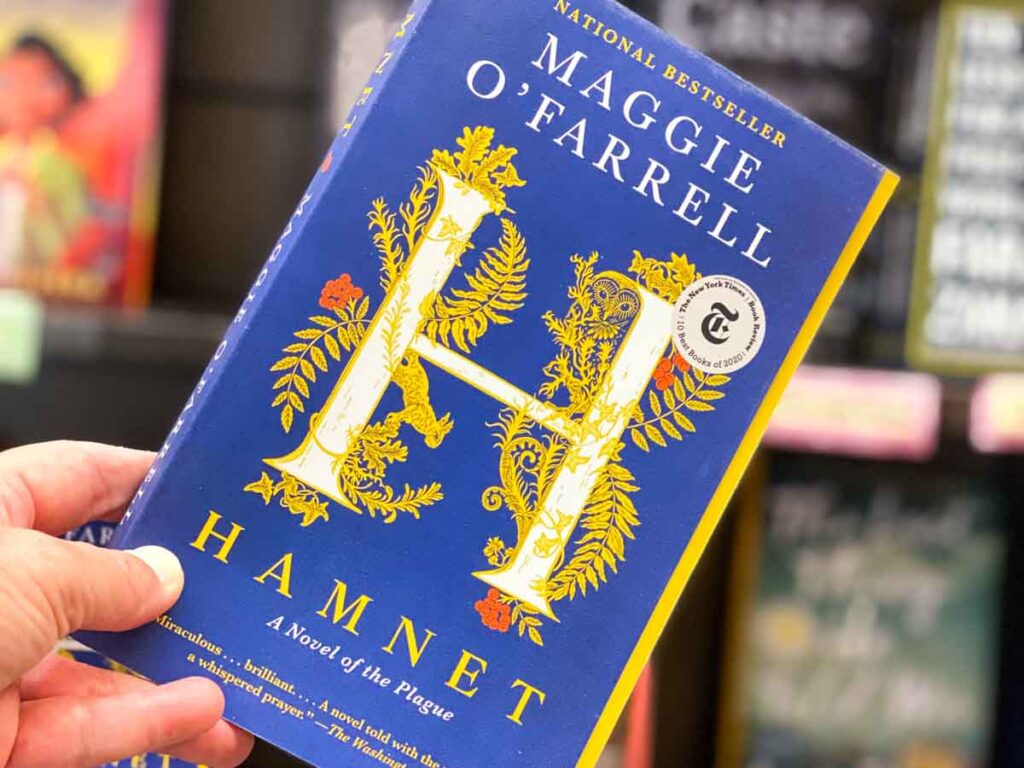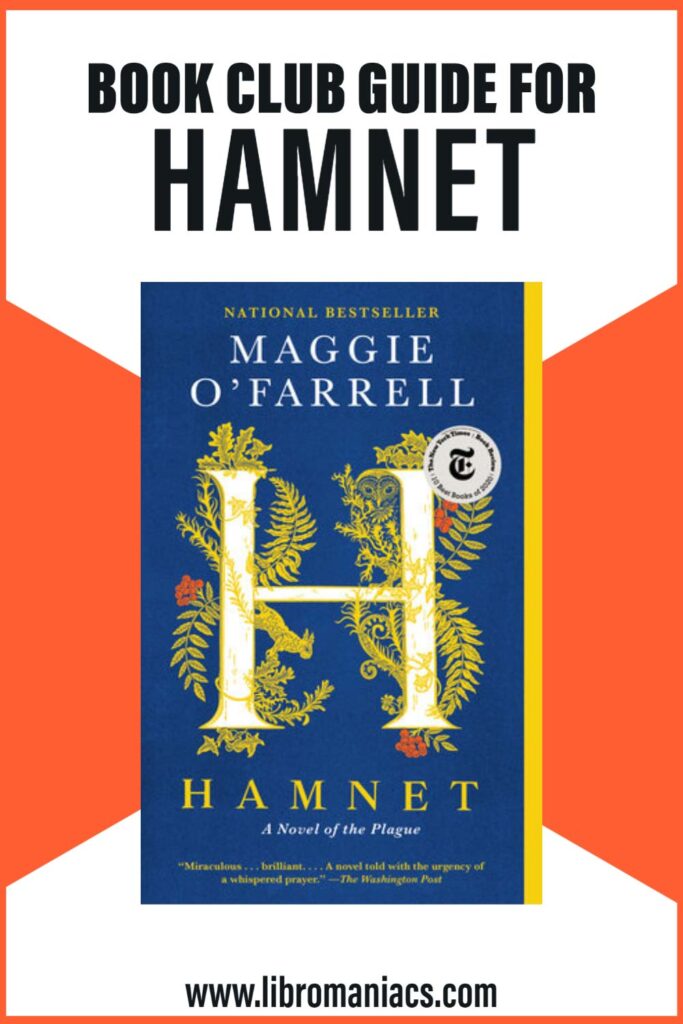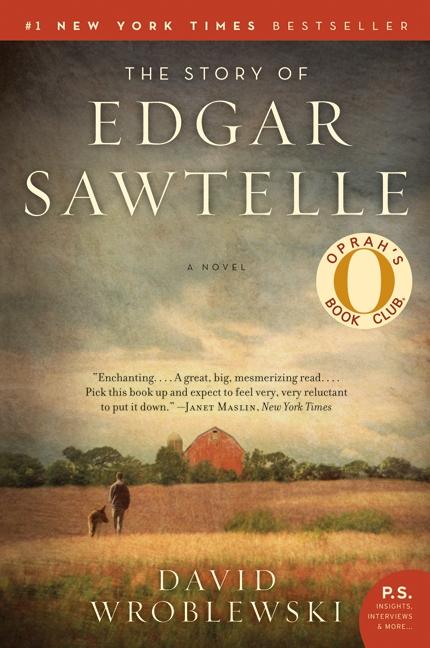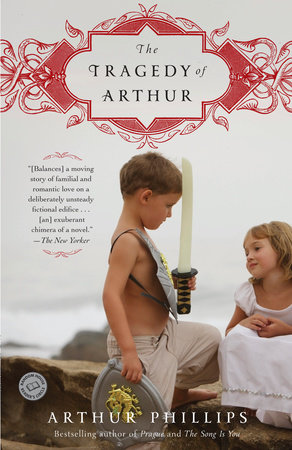Maggie O’Farrell’s Hamnet has won a ton of accolades. The novel earned a firm spot on the NY Times bestseller list and it garnered both a National Book Critic Circle Award and the Women’s Prize for Fiction. The book carries themes of love, loss, fraught family dynamics and making the hard trade-off between family and personal fulfillment.
Many readers loved Hamnet’s prose and it’s descriptive, transcendent qualities, while others found the book repetitive and labored. This diversity of reading experience, along with a rich imagining of Shakespeare’s family life are what will give you such a good Hamnet book club discussion.
Read on because our Hamnet book club questions will help you get the conversation started. Start with the publisher synopsis below. Does it accurately reflect your reading experience? If not, how might you change it?
Then move on to our 10 Hamnet book club questions and some selected (and contradictory) reviews of the book. And if you’d like to explore more family tragedies or alt fiction on Shakespeare, then we also suggest 3 books like Hamnet at the bottom of the article.

(This article contains affiliate links. This means that if you choose to purchase, I’ll make a small commission.)
Hamnet Synopsis
Hamnet, Maggie O’Farrell
England, 1580: The Black Death creeps across the land, an ever-present threat, infecting the healthy, the sick, the old and the young alike. The end of days is near, but life always goes on. A young Latin tutor—penniless and bullied by a violent father—falls in love with an extraordinary, eccentric young woman.
Agnes is a wild creature who walks her family’s land with a falcon on her glove and is known throughout the countryside for her unusual gifts as a healer, understanding plants and potions better than she does people. Once she settles with her husband on Henley Street in Stratford-upon-Avon, she becomes a fiercely protective mother and a steadfast, centrifugal force in the life of her young husband, whose career on the London stage is just taking off when his beloved young son succumbs to sudden fever.
Hamnet Book Club Questions
- This book is about William Shakespeare and his family. Yet, he is never specifically named. He is the husband, son, tutor or brother. Why do you think that the author made this choice?
- Agnes does not hew to the norms of her time. “She grows up feeling out of place, too dark, too tall, to unruly, too silent, too strange. She grows up with the awareness that she is merely tolerated…” How did this “strangeness” affect her relationship with her family and the villagers?
- Why did William keep Agnes and the kids in his father’s house for so long when it was such an uncomfortable environment?
- So many people lived in that house, and yet it was hours before an adult realized that something was wrong with Hamnet and Judith. There certainly wasn’t helicopter parenting going on in the house. How did you perceive the parenting styles of John, Mary, Joan, William and Agnes?
- John treats Agnes as ”a simpleton, a rural idiot”, and yet, she is very perceptive, a “sensitive” if you will. She has some specific skills, such as the ability to read someone’s essence by pressing the space between their thumb and forefinger. What did you think of her abilities and how did they affect her relationships with others in the story?
- Agnes encourages her husband to leave for London. And yet, when he leaves for the first time, Agnes observes that “her every world has cloven in two, (yet) here is the same dog dozing in the doorway”. She let William go and yet was pained by it. He was liberated by London, but was he happy to be away from his family? Was it the right choice?
- “How were they to know that Hamnet was the pin holding them together? That without him, they would fragment, and fall like a cup shattered on the floor”. How did each of the characters deal with the loss of Hamnet? Which response did you relate to?
- The book is named for Hamnet, but is it really about him? Is it a multi-gen family story? Is it more about grief and loss?
- Have you ever read or seen Hamlet? What do you remember of it and how does your recollection relate to the book?
- In the author’s note, O’Farrell acknowledges how little was actually known about Hamnet and his family, such as, where precisely they lived, Agnes/Ann’s name and the true source of Hamnet’s death. What did you know of Shakespeare’s life and how does this account square with it?
Selected Hamnet Reviews
“O’Farrell’s writing style is a lyrical dreamscape. Where the average author mentions the presence of kittens, O’Farrell writes of kittens “with faces like pansies and soft pads on their paws.” Some authors would stop at saying a character collected honey, O’Farrell describes the honey flowing “slow as sap, orange-gold, scented with the sharp tang of thyme and the floral sweetness of lavender.” Your average author notes a plum orchard, but O’Farrell invites readers to see plums with “red-gold jackets near to bursting with sweetness.” Hamnet is a feast for the senses; a seven-course meal for readers hungry for books written with skillful embellishment.”
“This book and I are enemies, foes, nemeses. I did not dnf it on principle to know if my loathing was justified till the end, finale, conclusion. (Spoiler alert – it was.) …About the prose: every description has at least 3 adjectives; every feeling or smell or object description has 3 similes; everything any character sees conjures some lyrical flashback. Where you can use 2 words to describe something, Maggie will use 25. It drove me mad, irritated, bored.”
“I was brought into lives so artfully portrayed, that I felt with them, lived with them and wanted to change things so they could find happiness. The grief expressed upon the loss of a child was searing. The effects of the Plague, like our Covid, frightening.”
“Because the writing is so unrelentingly verbose, the pacing in Hamnet suffers, and suffers badly. I just wanted O’Farrell to MOVE ON. I don’t need to know that Shakespeare’s hunger was like a rat snarling in his stomach or the names of the 500 different types of herbs that Agnes uses, I just need for the story to please, please move on.”
3 Books Like Hamnet
If you like O’Farrell’s words, use our book club guide for The Marriage Portrait. And if you like alternative explorations of historical works, try our guide for James, which explores an alternative version of Huck Finn or Demon Copperhead which is a modern retelling of David Copperfield.
Lincoln in the Bardo
By George Saunders
This book unfolds in a graveyard over one single night. Abraham Lincoln is grief-stricken after his young son Willie dies. When Lincoln visits Willie’s crypt, he finds himself in a fugue state, or purgatory, where ghosts quarrel over young Willie’s soul. The book is an unflinching look at love and grief wrapped in a very unique reading experience.
Like Hamnet, Lincoln in the Bardo deals with how grief can overtake a family and both books take fictional liberties with historical events that were not well documented.
The Story of Edgar Sawtelle
By David Wroblewski
Young Edgar is born mute and only speaks in sign language. His early life on his family’s farm is pretty idyllic as he helps his parents with their dog breeding business. Edgar become grief-stricken after his father’s sudden death and things take a dark turn as Edgar’s uncle Claude insinuates himself into the farm.
One reviewer aptly referred to the book as a cross between Hamlet and Old Yeller. The book is definitely a Shakespearean tragedy. Edgar is a character for you to fall in love with, but the story is a gut punch.
The Tragedy of Arthur
By Arthur Phillips
Arthur’s father is an excellent con man and a not-so-excellent father. But their family is bound together tightly by a love of Shakespeare’s works. On his deathbed, Arthur’s father shares the ultimate secret, which is that he’s been sitting on an previously undiscovered Shakespearean play called “The Tragedy of Arthur.”
Is the text real? Is it the ultimate con? Phillips leaves that for you to figure out. He excels at the unreliable narrator, even when that narrator is a fictional version of himself. The book’s format is unique as it toggles between the family story and the <supposed> text for the play. It’s a delightful read.
Have a listen on Audible. Try audio books for free for 30 days.
Share these Hamnet book club questions on Pinterest:





